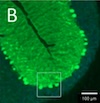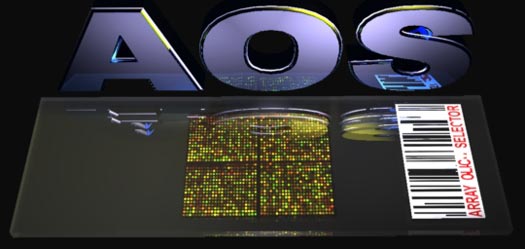 Remoscope: a label-free imaging cytometer for malaria diagnostics Trans R Soc Trop Med Hyg 2025
|
 IL-6 underlies microenvironment immunosuppression and resistance to therapy in glioblastoma bioRxiv, 2025
|
 A Trypanosoma cruzi Trans-Sialidase Peptide Demonstrates High Serological Prevalence Among Infected Populations Across Endemic Regions of Latin America medRxiv, 2025
|
 Proteomic profiling of the local and systemic immune response to pediatric respiratory viral infections American Society for Microbiology, 2025
|
 Endogenous antigens shape the transcriptome and TCR repertoire in an autoimmune arthritis model The Journal of Clinical Investigation, 2024
|
 Unveiling the proteome-wide autoreactome enables enhanced evaluation of emerging CAR T cell therapies in autoimmunity J Clin Invest 2024
|
 Total Syntheses of Cyclomarin and Metamarin Natural Products Organic Letters, 2024
|
 Anti-RGS8 paraneoplastic cerebellar ataxia is preferentially associated with a particular subtype of Hodgkin's lymphoma Springer Nature, 2024
|
 Microbial dynamics and pulmonary immune responses in COVID-19 secondary bacterial pneumonia Nature Portfolio, 2024
|
 Climate, demography, immunology, and virology combine to drive two decades of dengue virus dynamics in Cambodia PNAS, 2024
|
 Molecular mimicry in multisystem inflammatory syndrome in children Nature Portfolio, 2024
|
 Phage Immunoprecipitation-Sequencing Reveals CDHR5 Autoantibodies in Select Patients With Interstitial Lung Disease American College of Rheumatology, 2024
|
|  ArrayOligoSelector (AOS) is an open source program developed for the purpose of systematically designing gene-specific long oligonucleotide probes for entire genomes. For each open reading frame, the program optimizes oligo selection based upon several parameters, including uniqueness, complexity, secondary structure, GC content, and 3' end proximity.
Our laboratory has used AOS to generate Plasmodium falciparum oligonucleotide microarrays. Other labs have used AOS for a large variety of organisms, including mouse, human, worms, and yeast.
AOS also is hosted at SourceForge here. This site contains documentation and a user-friendly how-to.
Download an excerpt from Jing's thesis describing the AOS algorithm and implementation here.
Download AOS v3.8.4 |
|
